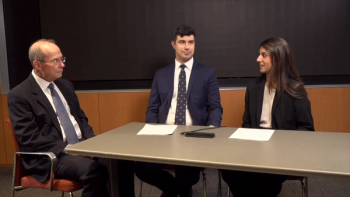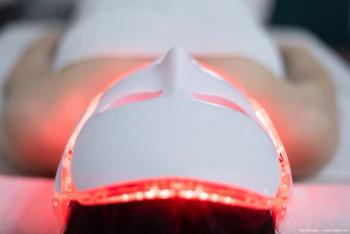
Topical moxifloxacin: Best choice before cataract surgery?
Researchers are looking for options to reduce corneal surface flora in patients
This article was reviewed by Caroline W. Wilson, MD
The use of topical moxifloxacin instilled onto the ocular surface before
Traditionally, perioperative topical antibiotics have been administered to prevent endophthalmitis following
Previously, surgeons prescribed antibiotics for use preoperatively and/or postoperatively to reduce rates of infection.
“With the increasing popularity of intracameral antibiotics, questions have arisen about the utility of continuing use of topical antibiotics before and after surgery,” Wilson said. “Many published studies have shown the equal efficacy of topical and intracameral antibiotics for preventing endophthalmitis.”
Related:
The use of intracameral antibiotics has gained popularity because of the reduced treatment burden for patients.
Wilson and colleagues also wondered if the benefits of intracameral drugs extended beyond just decreasing the treatment burden (ie, how do perioperative antibiotics affect the health and biome of the ocular surface?).
Wilson recounted that some studies have shown that use of preoperative and postoperative antibiotics has no proven benefit over topical antiseptics and intracameral antibiotics in the prevention of endophthalmitis.1
In addition, increasing the frequency and the duration of time over which the antibiotics are instilled also does not reduce the flora on the conjunctiva.2
There is also concern about the induction of antibiotic resistance with repeated use of the drugs in the population as a whole and in individuals.
The European Society of Cataract and Refractive Surgeons went so far as to recommend that preoperative antibiotics not be used.
Related:
To instill or not to instill?
To look further into this area of uncertainty, Wilson and colleagues wanted to determine what the effect of a short course of moxifloxacin actually had on the ocular surface flora before surgery and if bacterial resistance was induced after a few days of treatment.
The investigators conducted a prospective study in which study eyes were treated 4 times daily with moxifloxacin for 3 days preoperatively and control eyes received no antibiotic preoperatively.
They collected conjunctival swabs, one on the day surgery was scheduled and the second on the morning of the surgery before applying an antiseptic.
The swabs were sent for culturing, speciation by matrix-assisted laser desorption/ionization time-of-flight mass spectrometry, and drug sensitivity patterns, Wilson said.
The results showed that coagulase-negative staphylococcal species were the most frequently identified on the ocular surface in both study groups.
Related:
Wilson reported that among the patients who instilled moxifloxacin for 3 days preoperatively, 52% had ocular surface bacterial growth on the day of surgery, as did 100% of the control patients as expected.
“We saw that the antibiotics do work half of the time,” she commented. “Interestingly, 3 (17.6%) of the patients treated with moxifloxacin had flora resistant to the drug after the 3 days of use.
“Topical moxifloxacin instilled before cataract surgery does not effectively reduce the ocular surface flora in most patients,” Wilson concluded. “Further, bacterial resistance may be inducible in as little as 3 days of the topical antibiotic use.”
Wilson suggested future studies examine preoperative antibiotics’ affect on the efficacy of intracameral drugs against bacteria.
--
Caroline W. Wilson, MD
e:[email protected]
Dr. Wilson has no financial interest in this subject matter.
REFERENCES
1. Friling E, Lundström M, Stenevi U, Montan P. Six-year incidence of endophthalmitis after cataract surgery: Swedish National Study. J Cataract Refract Surg. 2013;39(1):15-21. doi; 10.1016/j.jcrs.2012.10.037
2. He L, Ta CN, Hu N, Sinnar S,
Newsletter
Don’t miss out—get Ophthalmology Times updates on the latest clinical advancements and expert interviews, straight to your inbox.





























